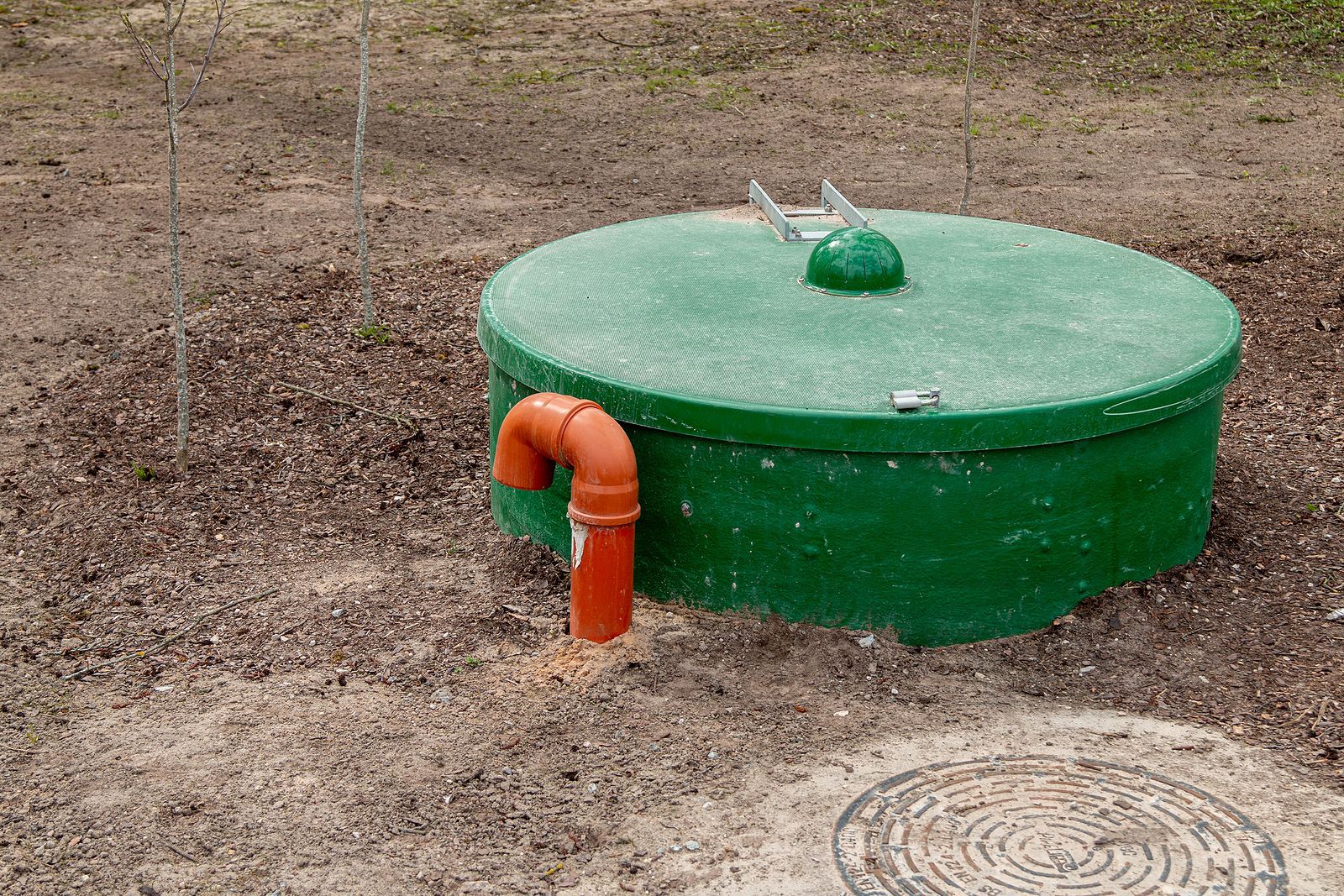
October 8, 2025
Preparing Your Septic System for Winter in Cary, IL When temperatures drop in Cary, IL, homeowners start thinking about winterizing sprinklers, sealing driveways, and cleaning gutters — but there’s one system that’s often overlooked: your septic system. Cold weather, frozen ground, and heavy snow can cause septic issues that lead to backups, odors, or system failure.At Helmer Septic, we’ve helped countless Illinois homeowners prevent winter septic problems through smart preparation and professional service. If you’ve been searching “septic maintenance near me” or “winter septic prep near you,” here’s what you need to know. 1. Pump Before the Freeze If your tank is close to full, cold weather can make it harder for bacteria to process waste efficiently. The best time to schedule septic tank pumping in Cary, IL is before the first deep freeze. Regular pumping ensures solids don’t build up and prevents system overload during the winter months when the ground is frozen and repairs become difficult. Searching “septic pumping near me” this time of year? Helmer Septic’s local team can get you on the schedule quickly before the cold hits. 2. Insulate Your Septic System A frozen septic line can stop everything in its tracks. Insulating your system — especially around the tank and drainfield area — helps protect it from freezing temperatures. You can use straw, mulch, or a light layer of leaves over the drainfield (without compacting it). Avoid heavy materials or parking vehicles over it, which can compress the soil and block airflow. If you’re not sure how to protect your system, our septic maintenance and repair experts near you in Cary, IL can inspect your setup and give you a winter-readiness plan. 3. Watch for Signs of Freezing Winter septic problems aren’t always dramatic. Here are a few early signs your system may be struggling: Slow-draining sinks or tubs Gurgling sounds from plumbing Foul odors near drains or outside Standing water or frozen ground above your tank If you notice any of these, it’s time to call Helmer Septic in Cary, IL for a professional inspection. We handle septic repairs near me fast — even in cold weather. 4. Schedule Preventive Maintenance The best way to avoid winter issues is through regular septic maintenance near you. Our technicians check baffles, lids, and filters to make sure everything’s sealed tight and working properly before the deep freeze sets in. If you have an aeration system, we’ll make sure your blower and air lines are protected from moisture and ice. A small tune-up now can prevent big problems later. 5. Protect Commercial Septic Systems Too If you own a business in Cary, Crystal Lake, or Algonquin, don’t forget your commercial septic system. Frozen lines or backed-up tanks can shut down your operation in the middle of your busy season. Our commercial septic services near you include inspections, pumping, and maintenance programs tailored for restaurants, offices, and industrial properties — all designed to prevent downtime. Why Winter Prep Matters Cold temperatures can slow down bacterial activity inside your tank, cause pipes to freeze, and even create blockages in the drainfield. Preventive care not only protects your home or business but also saves money — emergency repairs in frozen ground can be costly and time-consuming. By investing in winter septic maintenance now, you’ll enjoy: Fewer unexpected clogs and backups Better year-round performance Longer system lifespan Peace of mind during Cary’s coldest months Schedule Your Winter Septic Service in Cary, IL Winter-proof your septic system before it’s too late. Call Helmer Septic today for septic maintenance, repair, or pumping in Cary, IL , and surrounding communities. We proudly serve Cary, IL , Crystal Lake , Fox River Grove , Algonquin , and all nearby areas with professional, family-trusted service. Visit www.helmerseptic.com or call 224-888-POOP to schedule your winter septic service near me today.
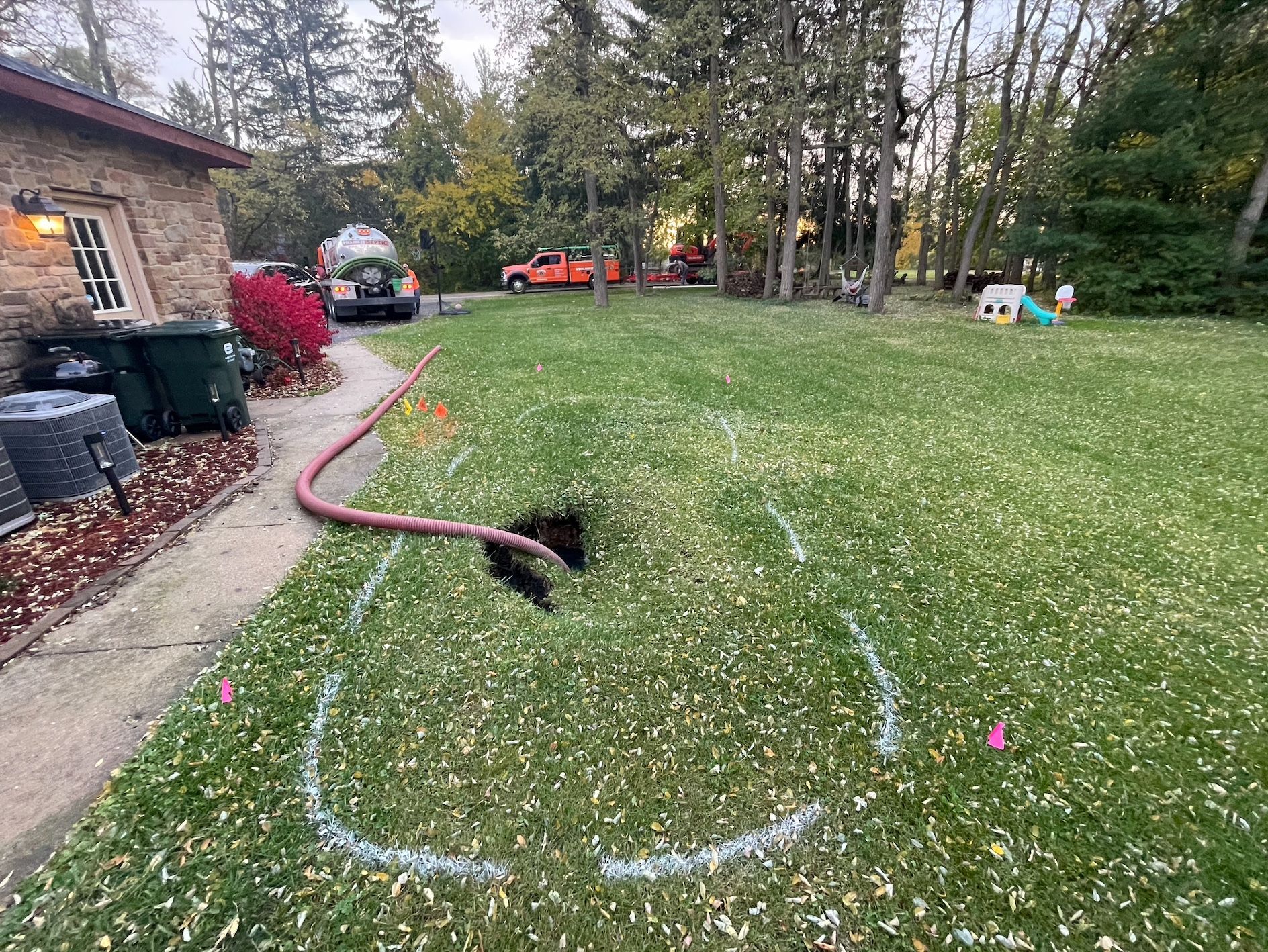
October 8, 2025
How to Keep Your Septic System Running Strong in Cary, IL If you live in Cary, IL, you know that a reliable septic system isn’t just a convenience — it’s essential. At Helmer Septic, we’ve been proudly serving homeowners and businesses across McHenry County, Lake County, and surrounding Illinois communities for years. From septic installation near you to routine septic tank pumping near me and system repairs, our goal is to help Cary residents avoid costly surprises and keep their systems running smoothly year-round. Here’s how you can extend the life of your system and why regular professional service matters. 1. Schedule Regular Septic Tank Pumping in Cary, IL Even the best septic systems fill up over time. Routine septic tank pumping near you keeps your system healthy and prevents backups into your home or yard. For most homes in Cary, we recommend pumping every 3–5 years, depending on household size and water usage. When you call Helmer Septic in Cary, IL, our team will inspect your tank, remove solids safely, and make sure everything is flowing the way it should — keeping your property sanitary and stress-free. If you’ve been searching online for “septic tank pumping near me” or “septic cleaning near you”, we’re your trusted local experts. 2. Choose Professional Septic System Installation Building a new home or replacing an old system in Cary? Our septic system installation services near me are customized for local soil conditions and Illinois environmental codes. We’ll help you select the right system size, placement, and materials to ensure efficiency and longevity. Every installation includes precision excavation, quality components, and thorough post-install inspection — all done by licensed professionals who understand Cary’s unique soil and weather patterns. 3. Don’t Wait to Fix Small Problems – Call for Septic Maintenance & Repair Many homeowners don’t realize that small septic issues — like slow drains or unpleasant odors — can quickly become major problems. That’s why we offer full septic maintenance and repair services near you in Cary, IL. Our technicians can replace baffles, repair cracked lids or pipes, clean filters, and restore drainfield performance before costly damage occurs. Regular maintenance is the key to avoiding emergency repairs and keeping your system reliable. If you’re looking for “septic repair near me” or “septic service near you”, Helmer Septic is always nearby with fast response times and trusted expertise. 4. Improve Efficiency with Septic Aeration Services If your system is struggling, septic aeration services in Cary, IL can restore balance and extend its lifespan. Helmer Septic installs and maintains aeration units that boost bacterial activity and improve wastewater breakdown — a great option for older systems near you that need improved performance. Aeration also helps reduce odors and improve system efficiency in high-water-use households and commercial properties. If you’ve been searching “septic aeration near me”, our Cary-based team can assess your system and recommend the right solution. 5. Septic Solutions for Businesses in Cary, IL Commercial properties have unique wastewater needs, and Helmer Septic’s commercial services are designed to handle them safely and efficiently. From restaurants and offices to manufacturing facilities, we manage installation, pumping, and ongoing maintenance to keep your system compliant and running properly. If your business in Cary, Crystal Lake, Fox River Grove, or Algonquin relies on a septic system, contact us for commercial septic service near you — we’re the local experts business owners trust. 6. Local Tips: How to Protect Your Septic System Year-Round Living in Cary, IL, means dealing with a mix of heavy rains, freezing winters, and humid summers — all of which can affect your septic system. Follow these simple tips to keep your system in top shape: Spread out laundry and water-heavy chores throughout the week Never flush wipes, hygiene products, or grease Keep vehicles, sheds, and patios off your drainfield Schedule regular pumping and inspection Fix leaks right away to avoid overloading your system If you need “septic maintenance near me” or simply want peace of mind that your system is working properly, Helmer Septic has you covered. Why Cary, IL Homeowners Trust Helmer Septic Local expertise – We understand Cary’s soil, codes, and drainage patterns. All-in-one service – Installation, pumping, maintenance, repair, aeration, and commercial services near you. Licensed and experienced – Our technicians bring decades of hands-on experience in septic care. Fast response – We serve Cary and nearby areas with dependable scheduling and emergency support. Whether you’re maintaining your system or planning a replacement, Helmer Septic in Cary, IL is the trusted name for quality, reliability, and local expertise. Contact Helmer Septic Today We proudly serve Cary, IL, Crystal Lake, Algonquin, Fox River Grove, and all nearby areas. Call 224-888-POOP to find septic experts near you today.
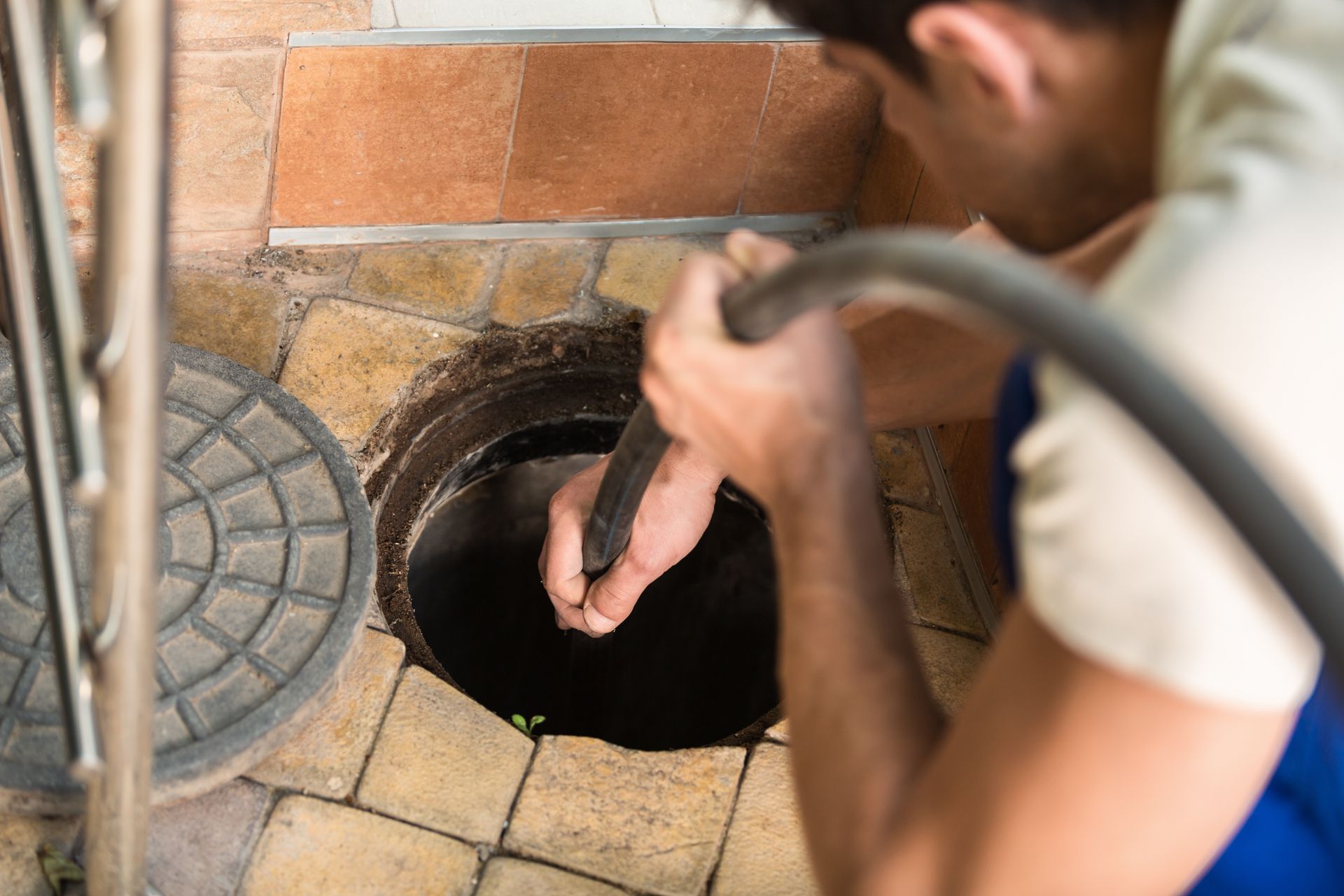
October 23, 2024
As a homeowner in Cary, IL, dealing with a sewer backup can be a nightmare. Not only is it messy and unpleasant, but it can also lead to costly repairs and potential damage to your property. One of the most effective ways to prevent this issue is by maintaining your main drain through regular cleaning. At Helmer Septic, we believe that proactive maintenance is the key to keeping your plumbing system in top shape and avoiding unexpected problems. The Importance of Main Drain Cleaning The main drain, also known as the main sewer line, is responsible for carrying all the wastewater from your home to the municipal sewer system or septic tank. Over time, debris like hair, soap scum, grease, and other waste products can build up in your pipes, eventually leading to clogs. When the main drain is blocked, it disrupts the entire plumbing system, causing sewage to back up into your home. By scheduling regular main drain cleanings, you can prevent clogs before they become a serious problem. This service helps remove debris, buildup, and potential obstructions that can eventually block your sewer line, keeping everything flowing smoothly. Signs Your Main Drain Needs Cleaning Recognizing the early warning signs of a potential sewer backup can save you from an expensive repair bill. Here are some common indicators that your main drain may need professional cleaning: Slow Draining Sinks and Tubs: If your sinks, tubs, or showers are draining slower than usual, it could indicate a blockage in the main line. Gurgling Noises: Hearing strange gurgling sounds coming from your drains or toilets is a common sign of air trapped in the pipes due to a clog. Foul Odors: If you notice unpleasant smells coming from your drains, it could be a sign of sewage buildup or a blocked main drain. Frequent Toilet Clogs: If your toilets are frequently clogging, even with regular use, it may be time to have your main drain checked. Water Backing Up: If water is backing up into your sinks, tubs, or floor drains, it’s a clear sign of a major clog in your main sewer line. Preventing Sewer Backups with Regular Maintenance Routine main drain cleaning can significantly reduce the chances of a sewer backup. By removing debris and ensuring that water and waste can flow freely through your system, you’re protecting your home from the risks associated with clogs. At Helmer Septic, we offer professional main drain cleaning services in Cary, IL, designed to keep your plumbing system functioning properly year-round. Why Choose Professional Main Drain Cleaning? While there are DIY methods for clearing minor clogs, professional drain cleaning offers a more thorough and long-lasting solution. Our team at Helmer Septic uses specialized equipment to inspect and clean your main sewer line, removing even the toughest blockages. We can also identify any potential issues, such as tree root intrusions or pipe damage, that may require further attention. By investing in regular main drain cleanings, you're not only preventing backups but also extending the lifespan of your plumbing system. Final Thoughts Preventing sewer backups starts with maintaining your main drain. If you live in Cary, IL, and have experienced any of the warning signs mentioned above, it may be time to schedule a professional main drain cleaning with Helmer Septic. Don’t wait until a major backup occurs—take preventative measures to protect your home and your wallet. For more information about our services or to schedule an appointment, contact Helmer Septic today!
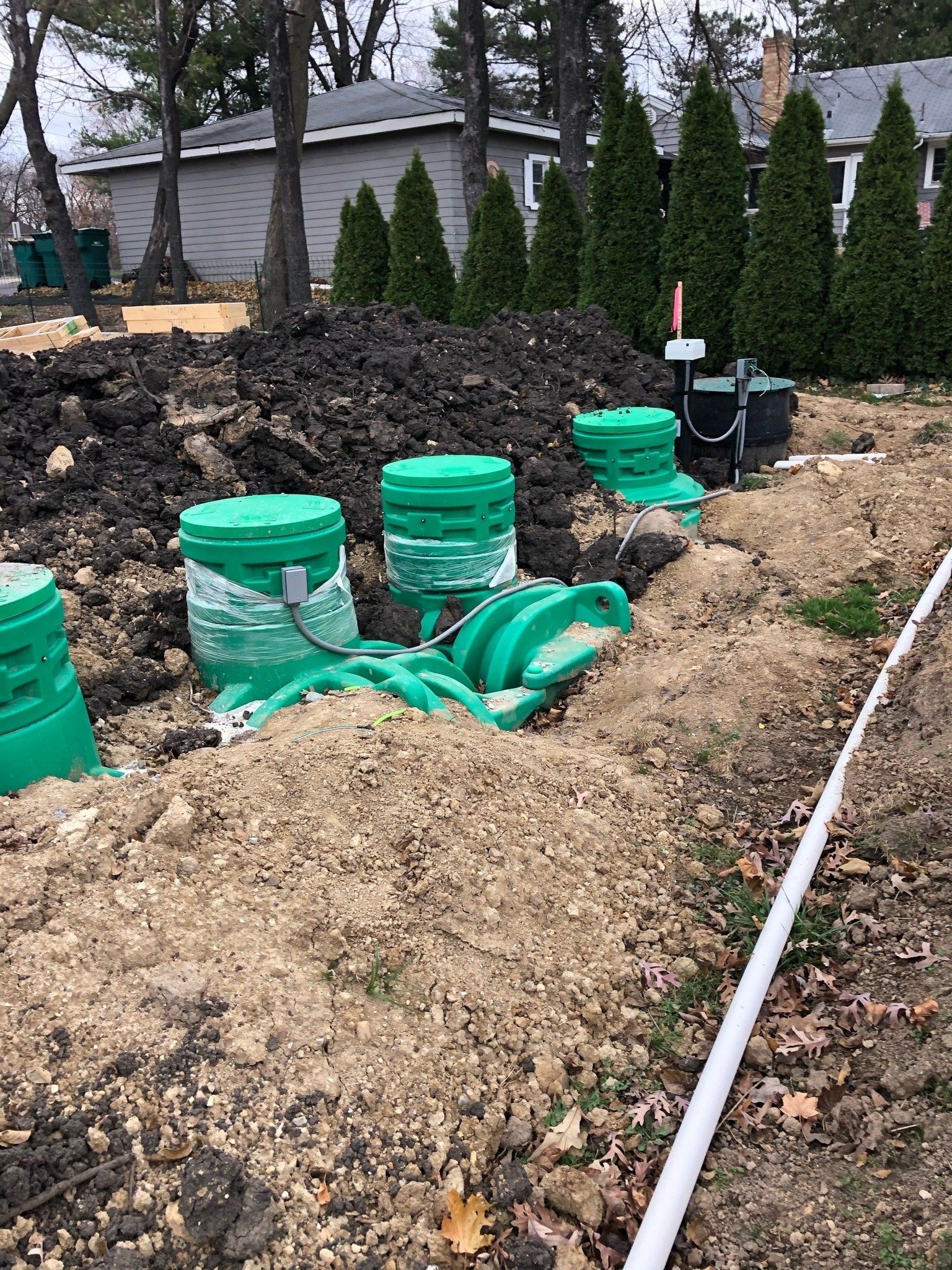
March 19, 2024
Having your septic tank pumped is a crucial maintenance task that helps keep your system running smoothly and prevents backups and odors. However, it's essential to follow proper post-pumping procedures to ensure the continued functionality and efficiency of your septic system. In this blog post, we'll outline the key steps to take after your septic tank is pumped at home to maintain a healthy and well-functioning system. Wait Before Using Water: After your septic tank is pumped, it's advisable to wait for a period before using water to allow the system to settle. This helps prevent potential disturbances to the newly emptied tank and allows time for any residual solids to settle back down. Conserve Water Usage: While it's tempting to resume normal water usage immediately after pumping, it's best to conserve water for the first 24-48 hours to allow the septic system to stabilize. Minimize activities like doing laundry, running the dishwasher, or taking long showers during this time. Inspect the Tank and Components: Take the opportunity to inspect your septic tank and its components after pumping. Look for any signs of damage, leaks, or wear and tear that may require attention. Pay attention to the tank's lid, inlet and outlet pipes, and the condition of the tank walls. Maintain Drain Field Protection: Avoid driving or parking vehicles, heavy equipment, or placing structures over the drain field to prevent soil compaction and damage to the system. Maintain a clear area above the drain field to allow for proper ventilation and absorption of effluent. Monitor Drainage and Odors: Keep an eye (and nose) out for any unusual signs after pumping, such as slow drainage, gurgling sounds, or foul odors. These could indicate issues with your septic system that may require further inspection or maintenance. Consider Adding Bacteria Additives: Adding septic system bacteria additives after pumping can help restore the microbial balance in your tank and enhance the breakdown of organic matter. Consult with your septic service provider for recommendations on suitable additives for your system. Schedule Regular Maintenance: Septic tank pumping is just one part of a comprehensive maintenance plan for your septic system. To ensure ongoing performance and longevity, schedule regular inspections, pumpings, and maintenance according to the recommendations of your septic service provider. Keep Records of Service: Maintain a record of all septic system maintenance activities, including pumpings, inspections, repairs, and additives added. This documentation can help track the health and history of your system and provide valuable information for future maintenance needs. Educate Household Members: Ensure that all household members are aware of proper septic system care and maintenance practices. Educate them about what can and cannot be flushed or disposed of down drains to prevent clogs and damage to the system. Contact Professional Assistance if Needed: If you encounter any issues or concerns after your septic tank is pumped, don't hesitate to contact a professional septic service provider for assistance. Prompt action can help address problems before they escalate and ensure the continued functionality of your septic system. Proper post-pumping care is essential for maintaining the health and efficiency of your septic system. By following these essential steps and staying proactive with maintenance, you can prolong the life of your septic tank, prevent costly repairs, and enjoy trouble-free operation for years to come. Remember, a well-maintained septic system is a key component of a healthy and hygienic home environment.
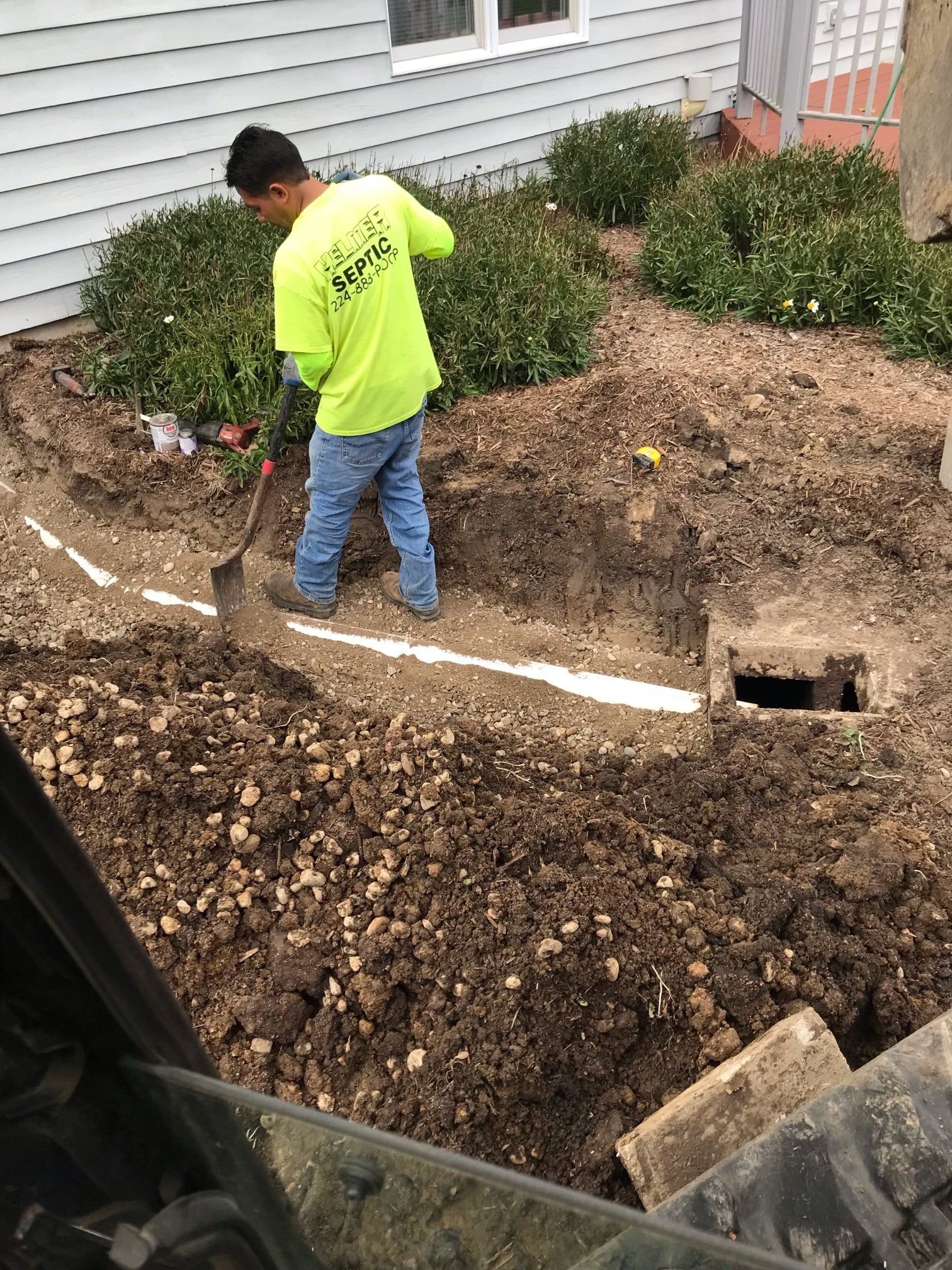
March 19, 2024
As technology advances and environmental regulations evolve, upgrading your septic system can offer numerous benefits, including improved efficiency, enhanced performance, and reduced environmental impact. Whether your current system is outdated, struggling to meet demand, or in need of compliance with new regulations, upgrading your septic system can be a smart investment. In this blog post, we'll explore the advantages of upgrading your septic system and highlight key considerations for making the transition. Improved Efficiency: Upgrading to a modern septic system can significantly improve efficiency in waste treatment and disposal. Advanced technologies such as aerobic treatment units (ATUs) and drip irrigation systems offer superior wastewater treatment capabilities, resulting in cleaner effluent and better overall system performance. Enhanced Capacity: If your current septic system is struggling to keep up with increased household demand or has reached its capacity limit, upgrading to a larger or more robust system can provide the additional capacity needed to accommodate your household's needs effectively. This can prevent backups, odors, and other issues associated with overloaded systems. Environmental Compliance: Regulatory requirements for septic systems are continually evolving to protect public health and the environment. Upgrading your septic system ensures compliance with current regulations, minimizing the risk of fines, penalties, or legal issues associated with non-compliance. Reduced Maintenance Needs: Older septic systems may require frequent maintenance and repairs to keep them functioning properly. Upgrading to a newer, more efficient system can reduce maintenance needs and associated costs, saving you time and money in the long run. Long-Term Cost Savings: While the upfront cost of upgrading your septic system may seem significant, the long-term cost savings can outweigh the initial investment. Modern systems are designed to be more energy-efficient and require fewer repairs and replacements, resulting in lower overall operating costs over time. Increased Property Value: Upgrading your septic system can enhance the value of your property, making it more attractive to potential buyers. A modern, well-maintained septic system is seen as a valuable asset and can contribute to a higher resale value for your home. Innovative Technologies: Advances in septic system technology have led to the development of innovative solutions that offer superior performance and environmental benefits. From alternative treatment methods to smart monitoring systems, upgrading your septic system allows you to take advantage of the latest advancements in the industry. Customized Solutions: Every property has unique characteristics and requirements that may necessitate a customized septic system solution. When upgrading your septic system, you have the opportunity to design a system that is tailored to your specific needs, ensuring optimal performance and efficiency. Professional Guidance: When considering an upgrade to your septic system, it's essential to consult with experienced professionals who can assess your property, evaluate your needs, and recommend the most suitable upgrade options. Professional guidance ensures that you make informed decisions and achieve the best results with your septic system upgrade. Upgrading your septic system offers a wide range of benefits, including improved efficiency, enhanced performance, and reduced environmental impact. Whether you're looking to comply with regulations, increase capacity, or simply improve the functionality of your system, upgrading your septic system is a smart investment that can deliver long-term value for your property. With the guidance of experienced professionals, you can navigate the upgrade process smoothly and enjoy the benefits of a modern, efficient septic system for years to come.
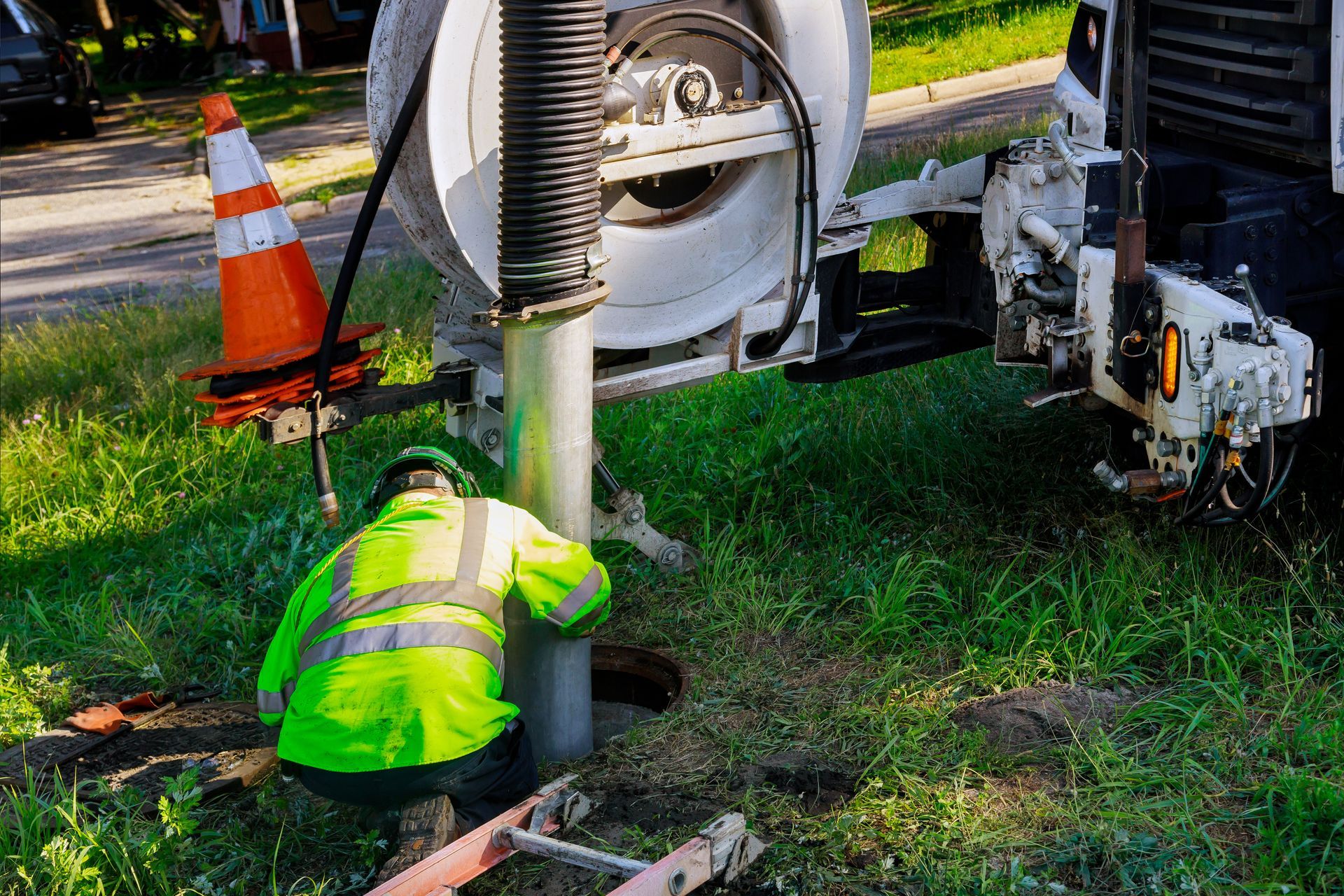
March 19, 2024
Regular septic tank cleaning is a crucial aspect of septic system maintenance that is often overlooked by homeowners. Neglecting to clean your septic tank can lead to a variety of issues that are not only inconvenient but also costly to repair. In this blog post, we'll discuss the problems you can avoid by having your septic tank cleaned regularly, emphasizing the importance of proactive maintenance for a healthy and functional septic system. Preventing Costly Repairs: Regular septic tank cleaning helps prevent costly repairs by removing accumulated solids and sludge from the tank. Failure to clean the tank can lead to clogs, backups, and damage to the system, requiring expensive repairs or even replacement. Avoiding Drain Field Failure: A neglected septic tank can become overloaded with solids, causing untreated wastewater to flow into the drain field. This can lead to drain field failure, resulting in sewage backups, foul odors, and contaminated groundwater. Regular cleaning helps maintain the balance of solids in the tank, preventing drain field issues. Minimizing Health Risks: Untreated sewage backing up into your home or yard poses significant health risks to you and your family. Regular septic tank cleaning reduces the likelihood of sewage backups and minimizes the risk of exposure to harmful bacteria and pathogens. Preventing Foul Odors: An overloaded septic tank can emit foul odors both inside and outside your home. These odors are not only unpleasant but can also indicate a serious problem with your septic system. Regular cleaning eliminates the buildup of sewage solids that contribute to foul odors, keeping your property smelling fresh. Maintaining Property Value: A malfunctioning septic system can detract from the value of your property and make it difficult to sell. By investing in regular septic tank cleaning, you can maintain the value of your home and ensure that your septic system is in good working condition. Preventing Environmental Contamination: Untreated wastewater leaking from a neglected septic tank can contaminate groundwater and surface water, posing environmental risks to nearby water sources and ecosystems. Regular cleaning helps prevent environmental contamination by ensuring that wastewater is properly treated and contained within the septic system. Avoiding Emergency Situations: Septic tank backups and failures often occur at the most inconvenient times, leading to emergency situations that require immediate attention and costly repairs. Regular septic tank cleaning reduces the risk of emergencies by proactively addressing potential issues before they escalate. Complying with Regulations: Many localities have regulations requiring regular maintenance and cleaning of septic systems. By adhering to these regulations and keeping your septic tank clean, you can avoid potential fines and penalties for non-compliance. Extending the Lifespan of Your Septic System: Regular maintenance, including septic tank cleaning, can significantly extend the lifespan of your septic system. By removing solids and preventing clogs, backups, and other issues, you can help your septic system operate efficiently for many years to come. Regular septic tank cleaning is a simple yet essential aspect of septic system maintenance that can help you avoid a variety of problems. By investing in proactive maintenance, you can protect your property, safeguard your health, and ensure the longevity of your septic system. Don't wait for problems to arise – schedule regular septic tank cleanings to keep your system running smoothly.
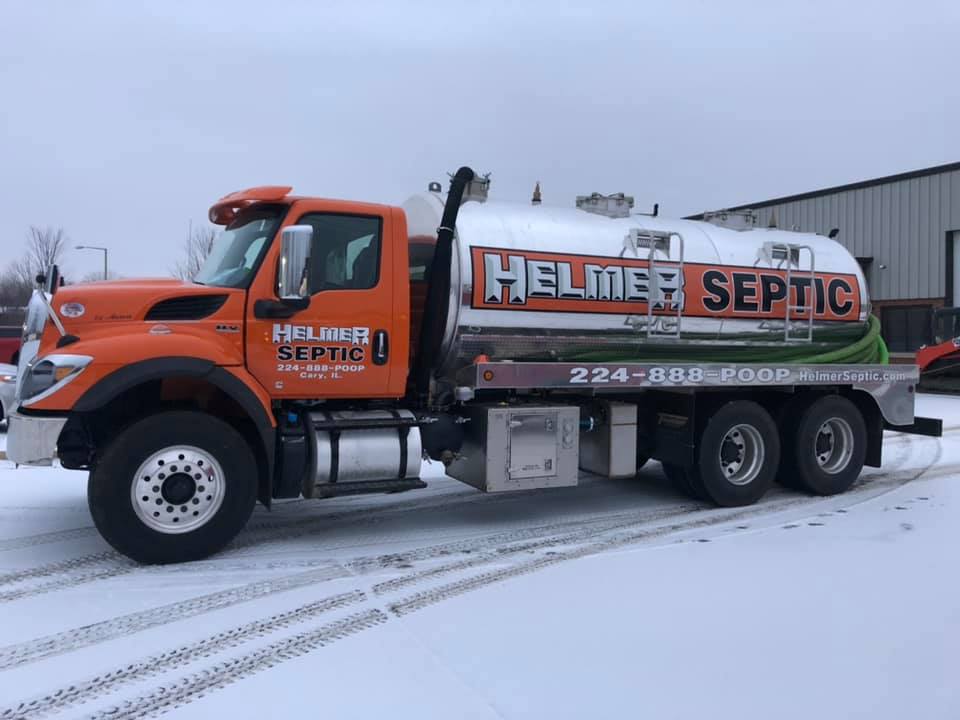
March 19, 2024
Septic tank issues can be daunting for homeowners, often leading them to consider DIY repairs as a cost-saving measure. However, attempting to repair a septic tank without the necessary expertise and equipment can result in costly mistakes and potential hazards. In this blog post, we'll explore why septic tank repair should be left to professionals and highlight the risks associated with DIY approaches. Expertise and Experience: Professional septic tank repair technicians have the necessary expertise and experience to diagnose and address a wide range of septic system issues. They undergo rigorous training and stay updated on the latest repair techniques and industry standards, ensuring efficient and effective repairs. Proper Equipment and Tools: S eptic tank repair often requires specialized equipment and tools that may not be readily available to homeowners. Professional technicians are equipped with the right tools for the job, enabling them to perform repairs safely and accurately. Safety Considerations: Working on a septic tank poses various safety risks, including exposure to toxic gases, pathogens, and physical hazards. Professional technicians are trained to adhere to safety protocols and use protective gear to minimize risks during repair work. Regulatory Compliance: Septic tank repairs must comply with local regulations and codes to ensure the safety and functionality of the system. Professional technicians are familiar with these regulations and can ensure that repairs are performed according to code, avoiding potential legal issues or fines. Comprehensive Diagnosis: DIY attempts at septic tank repair may overlook underlying issues or fail to address the root cause of the problem. Professional technicians conduct thorough inspections and diagnostics to identify the source of the issue and recommend appropriate repair solutions. Prevention of Further Damage: Improper repairs or incomplete fixes can exacerbate existing septic tank problems, leading to further damage and costly repairs down the line. Professional technicians prioritize long-term solutions and take preventive measures to avoid future issues. Efficiency and Timeliness: Professional septic tank repair technicians work efficiently to resolve issues promptly, minimizing disruption to your home and daily routine. They understand the urgency of septic system problems and strive to provide timely solutions to restore functionality. Warranty and Guarantee: Reputable septic tank repair companies often provide warranties or guarantees on their workmanship, giving homeowners peace of mind knowing that repairs are covered in case of any issues. This added assurance is not typically available with DIY repairs. Cost-Effectiveness in the Long Run: While DIY repairs may seem like a cost-saving option initially, they can end up costing more in the long run due to mistakes, incomplete fixes, and subsequent repairs. Investing in professional septic tank repair ensures quality workmanship and reduces the likelihood of costly future repairs. When it comes to septic tank repair, the risks associated with DIY approaches far outweigh the potential savings. Professional technicians offer expertise, safety, regulatory compliance, and peace of mind, making them the best choice for ensuring the efficient and effective repair of your septic system. Don't gamble with the health and safety of your septic tank – trust the professionals for reliable repair solutions.

March 19, 2024
When buying or selling a property with a septic system, a thorough inspection is essential to ensure the system is functioning properly and complies with local regulations. Real estate septic system inspections provide valuable insights into the condition of the system, helping buyers and sellers make informed decisions. In this blog post, we'll discuss everything you need to know about real estate septic system inspections, including their importance, what they entail, and how to prepare for them. Importance of Septic System Inspections in Real Estate Transactions: Real estate septic system inspections are crucial for both buyers and sellers. For buyers, it provides peace of mind knowing the condition of the septic system before purchasing the property. For sellers, it can help identify any issues that may need to be addressed before listing the property for sale. When Should You Get a Septic System Inspection? If you're buying or selling a property with a septic system, it's advisable to schedule a septic system inspection as part of the real estate transaction process. Inspections should ideally be conducted before finalizing the sale to avoid any surprises later on. What Does a Real Estate Septic System Inspection Entail? A real estate septic system inspection typically involves a thorough evaluation of the entire septic system, including the tank, distribution lines, drain field, and any other components. The inspector will assess the system's condition, functionality, and compliance with local regulations. Common Inspection Procedures and Tests: During the inspection, the inspector may perform various tests and procedures to evaluate the septic system's performance. This may include visual inspections, dye tests, water flow tests, and soil percolation tests to assess drainage capabilities. Documentation and Reporting: After completing the inspection, the inspector will provide a detailed report outlining their findings, including any issues or recommendations for repairs or maintenance. This report is essential for both buyers and sellers to understand the condition of the septic system. Addressing Inspection Findings: Depending on the inspection findings, buyers and sellers may need to take appropriate actions. Sellers may need to address any identified issues or provide documentation of recent maintenance or repairs. Buyers may negotiate repairs or adjustments to the sale price based on the inspection report. Preparing for a Septic System Inspection: To ensure a smooth inspection process, both buyers and sellers should take certain steps to prepare the property and septic system. This may include locating and providing access to the septic tank and drain field, addressing any known issues, and keeping records of maintenance and repairs. Hiring a Qualified Septic System Inspector: It's essential to hire a qualified and experienced septic system inspector to conduct the real estate inspection. Look for inspectors who are licensed, knowledgeable about local regulations, and have a track record of thorough and accurate inspections. Understanding Local Regulations and Requirements: Real estate septic system inspections must comply with local regulations and requirements. Familiarize yourself with these regulations and ensure the inspection is conducted by a qualified inspector who understands and adheres to local guidelines. Real estate septic system inspections are a crucial step in buying or selling a property with a septic system. By understanding the importance of inspections, knowing what to expect, and preparing accordingly, buyers and sellers can ensure a smooth and informed transaction process. Don't overlook the significance of septic system inspections in your real estate endeavors – they can save you time, money, and headaches in the long run.
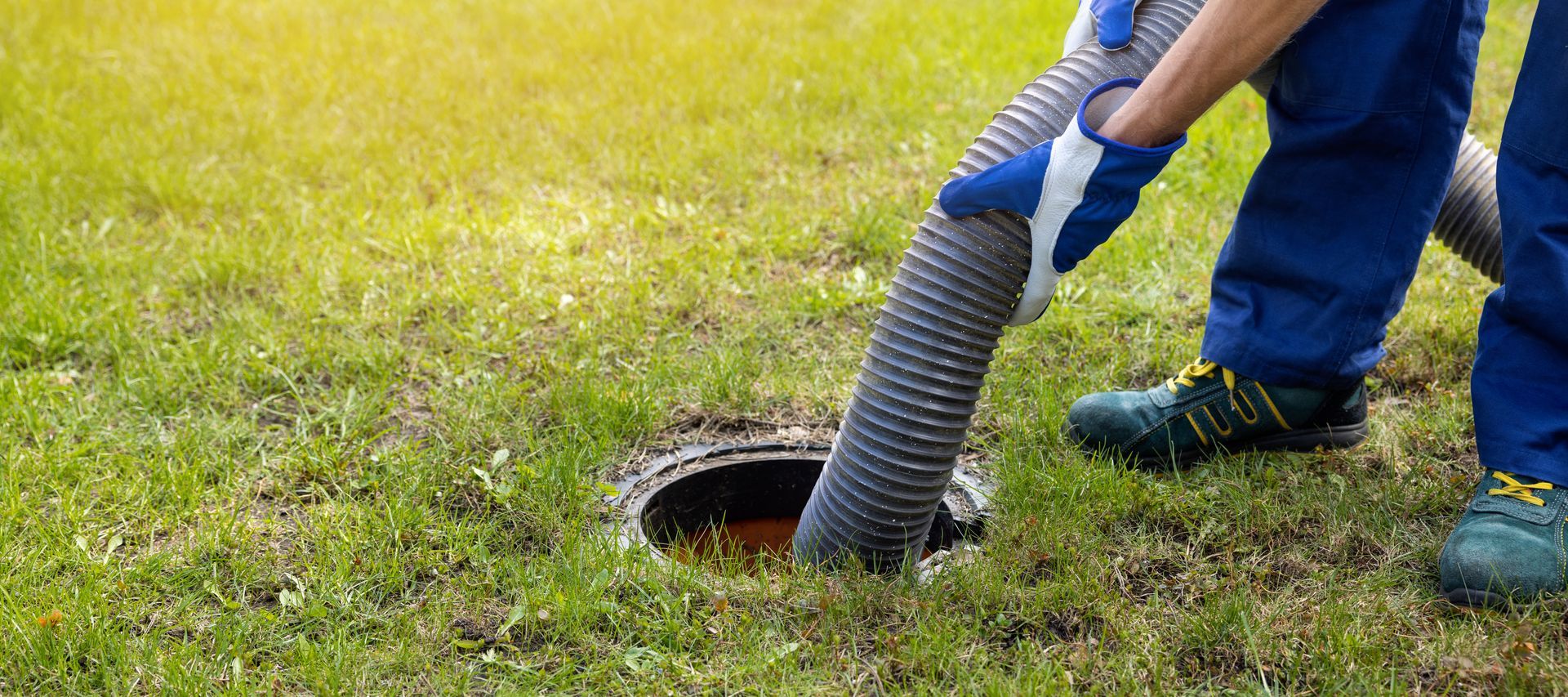
March 19, 2024
A main line clog can wreak havoc on your plumbing system, leading to slow drains, backups, and potential water damage. Recognizing the signs of a main line clog early can help you address the issue promptly and prevent further complications. In this blog post, we'll explore some common signs that indicate you may have a main line clog and provide tips on how to deal with this plumbing issue effectively. Slow Draining Fixtures: One of the most common signs of a main line clog is slow draining fixtures throughout your home. If multiple sinks, toilets, or showers are draining slowly or gurgling when flushed or drained, it could indicate a blockage in the main sewer line. Frequent Toilet Backups: If you're experiencing frequent toilet backups, especially after using multiple plumbing fixtures simultaneously, it may be a sign of a main line clog. Pay attention to whether flushing one toilet causes backups in other toilets or drains. Unusual Gurgling Noises: Gurgling noises coming from drains or toilets when water is running elsewhere in the house can indicate air trapped in the plumbing system due to a main line clog. These noises are often a warning sign that should not be ignored. Foul Odors Coming from Drains: A main line clog can cause sewage backup, leading to foul odors emanating from drains throughout your home. If you notice persistent sewage smells, especially in lower-level drains or near floor drains, it could indicate a main line issue. Water Backing Up in Floor Drains: Floor drains in basements, utility rooms, or garages may be the first to show signs of a main line clog. If you notice water backing up or pooling around floor drains, it's essential to address the issue promptly to prevent water damage and potential health hazards. Visible Sewage Backup: In severe cases, a main line clog can cause raw sewage to back up into sinks, toilets, or tubs. This is a clear indication of a significant blockage in the main sewer line and requires immediate attention from a professional plumber. Multiple Fixture Issues: When multiple plumbing fixtures are experiencing issues simultaneously, such as slow drains, backups, or unusual noises, it's likely that the problem originates in the main sewer line rather than individual drain lines. Changes in Water Levels in Toilet Bowls: Keep an eye on the water levels in your toilet bowls. If you notice fluctuations in water levels, including unusually high or low levels, it could indicate a main line clog affecting the proper flushing and drainage of toilets. Lush Patches of Grass in the Yard: In some cases, a main line clog can lead to sewage leakage into the yard, resulting in unusually lush patches of grass or vegetation above the location of the main sewer line. This may indicate a significant underground plumbing issue. Previous Main Line Clog History: If you've experienced main line clogs in the past, be vigilant for any recurring symptoms. Addressing issues promptly and implementing preventive measures can help minimize the risk of future clogs. Identifying the signs of a main line clog early is crucial for preventing water damage, sewage backups, and costly repairs. If you notice any of the symptoms mentioned above, it's essential to address the issue promptly by contacting a professional plumber experienced in dealing with main line clogs. With timely intervention and proper maintenance, you can keep your plumbing system running smoothly and avoid the inconvenience of main line clogs in the future.
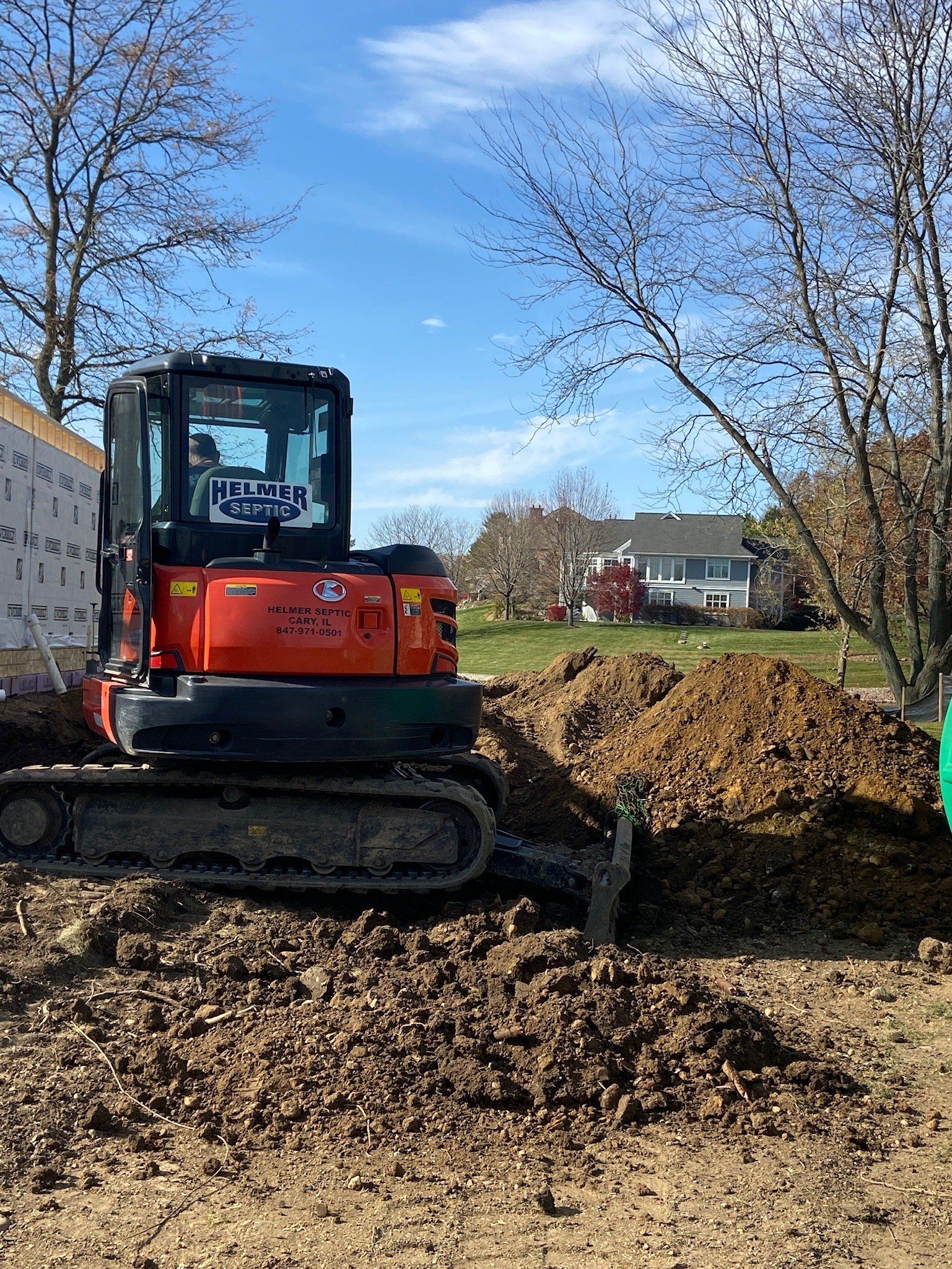
March 19, 2024
Installing a septic tank is a significant investment and a crucial decision for any homeowner. It's essential to ask the right questions and gather pertinent information to ensure a smooth installation process and optimal performance of your septic system. In this blog post, we'll outline the ten key questions you should ask before getting a septic tank installed, helping you make informed choices and avoid potential pitfalls. What Size Septic Tank Do I Need? The size of your septic tank depends on factors such as the size of your household, water usage, soil type, and local regulations. An experienced septic system installer can assess your needs and recommend the appropriate tank size. What Type of Septic System is Suitable for My Property? There are various types of septic systems, including conventional gravity systems, mound systems, and aerobic treatment units. Understanding the differences and determining which type is best suited to your property's characteristics is crucial. Where Should the Septic Tank be Located? The location of your septic tank and drain field is critical for efficient operation and compliance with regulations. Factors such as soil composition, slope, and proximity to water sources must be considered when determining the tank's placement. What Are the Local Regulations and Permits Required? Every area has specific regulations governing septic system installation, including permits and approvals. Make sure to inquire about local requirements and ensure compliance before proceeding with the installation. What Maintenance Will the Septic System Require? Proper maintenance is essential for the longevity and performance of your septic system. Ask about recommended maintenance tasks, such as regular pumping, inspections, and potential repairs, to keep your system in optimal condition. What Are the Installation Costs and Payment Options? Get a detailed estimate of the installation costs, including materials, labor, and any additional expenses. Discuss payment options and financing arrangements to ensure the installation fits within your budget. How Long Will the Installation Take? Understanding the timeline for the installation process is crucial for planning and scheduling. Ask about the expected duration of the installation and any factors that could affect the timeline. What Warranty and Guarantee Does the Installation Come With? Inquire about warranties and guarantees provided by the septic tank installer. A reputable company should offer warranties on both labor and materials to provide peace of mind for homeowners. Are There Any Environmental Considerations? Septic system installations can impact the environment, particularly in sensitive areas. Ask about measures to minimize environmental impact, such as proper waste disposal and protection of natural resources. Can I Get References or Reviews from Past Customers? Request references or read reviews from previous customers to gauge the company's reputation and quality of service. Hearing about other homeowners' experiences can provide valuable insights into the installer's reliability and professionalism. Asking the right questions before installing a septic tank is crucial for a successful and trouble-free installation process. By understanding your needs, local regulations, maintenance requirements, and other important factors, you can make informed decisions and ensure the long-term performance of your septic system. Don't hesitate to reach out to experienced septic tank installers for guidance and assistance throughout the process.
Reach Out for a Free Estimate
Contact Us
Thank you for contacting us.
We will get back to you as soon as possible.
We will get back to you as soon as possible.
Oops, there was an error sending your message.
Please try again later.
Please try again later.
Areas We Serve
- McHenry County
- Lake County
- Cook County
- Kane County
- Cary, IL
- Fox River Grove, IL
- Crystal Lake, IL
- Oakwood Hills, IL
- Trout Valley, IL
- Lakewood, IL
- Woodstock, IL
- Barrington, IL
- South Barrington, IL
- North Barrington, IL
- Lake Barrington, IL
- Barrington Hills, IL
- Lake Zurich, IL
- Inverness, IL
- Deer Park, IL
- Long Grove, IL
- Kildeer, IL
- McHenry, IL
- Wauconda, IL
- Island Lake, IL
- Algonquin, IL
- Lake in the Hills, IL
- Dundee, IL
- Sleepy Hollow, IL
- Bull Valley, IL
- Huntley, IL
- Holiday Hills, IL
- Prairie Grove, IL
- Johnsburg, IL
- Spring Grove, IL
- Marengo, IL
- Wonder Lake, IL
- Arlington Heights, IL
- Elgin, IL
- Hoffman Estates, IL
- Palatine, IL
- Schaumburg, IL
- Green Oaks, IL
- Fox Lake, IL
- Lakemoor, IL
- Libertyville, IL
- Mundelein, IL
- Tower Lakes, IL
- Volo, IL
- West Dundee, IL
- Carpentersville, IL
- Hampshire, IL
- South Elgin, IL
We Work with the Best Clients
Tonia G.
Great service and they go the extra mile to ensure customer satisfaction! We used Helmer to repair our septic system, when the septic company we had been using for years, failed to correctly fix the problem. Helmer came in and fixed the issue and saved us thousands of dollars! Highly recommend Helmer's services!
Joren B.
Fantastic service! Got an appointment the next day to have my septic tank sucked out. Aaron did a great job and gave me good info to keep my system running well. Will definitely continue to use for years to come.







